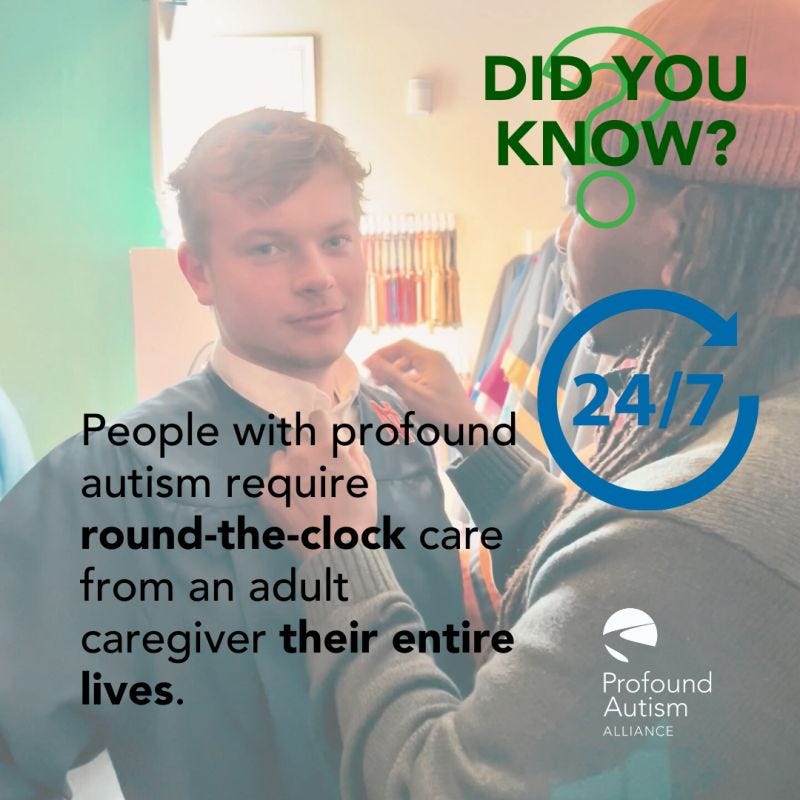Profound Autism: The Lancet Commission
Autism Awareness Month Ends on a Somber Note
By Peter A. McCullough, MD, MPH
Profound autism, a term formally recognized by The Lancet Commission, describes a subset of individuals with autism spectrum disorder (ASD) who require 24-hour support and assistance due to significant intellectual disability and limited to no language skills. This term aims to better address the specific needs of this highly vulnerable population within the broader autism spectrum.

Clarke et al from UCLA as summarized this severe childhood neuropsychiatric disorder rising at alarming rates:
New prevalence estimates from the Centers for Disease Control (CDC) found that over a quarter, 26.7%, of children with autism in the United States meet criteria for profound autism (26), suggesting that in the United States, a substantial minority of children with autism may be at increased risk of experiencing stigma due to the nature and intensity of their autism symptoms. Additional work is needed to further understand the prevalence of profound autism, particularly in clinical and community-based samples, so we can better understand what proportion of autistic individuals and their families may experience stigma related to profound autism. Such information is also critical to improving service planning for this population, as most profoundly autistic individuals cannot speak for themselves and are likely to need intensive support services for much or all their lives.
The lack of concern over the etiology of profound autism is my greatest worry. The CDC message is to simply get ready for more support and care services for the tidal wave of toddlers with profound autism in the next few years. Without efforts to identify modifiable risk factors, (eg combination early childhood vaccination, febrile seizures of any cause, environmental toxins) our public health agencies and special interest groups are walking us into an existential societal disaster under the monikers of of “neurodiversity” and “neurodivergence.”
Please subscribe to FOCAL POINTS as a paying ($5 monthly) or founder member so we can continue to bring you the truth.
Peter A. McCullough, MD, MPH
President, McCullough Foundation
www.mcculloughfnd.org
Lord, Catherine et al. “The Lancet Commission on the future of care and clinical research in autism.” Lancet (London, England) vol. 399,10321 (2022): 271-334. doi:10.1016/S0140-6736(21)01541-5




Glad you called out that profound autism requires 24 supervision. Nowadays we have shows promoting “autism” — like “Love on the Spectrum.”
This “spectrum” is part of a coordinated effort to hide what is causing autism: https://unorthodoxy.substack.com/p/how-the-dsm-iii-and-tv-shows-rebranded
And the fact is that a lot of what we call autism is actually vaccine induced encephalopathy: https://unorthodoxy.substack.com/p/stop-calling-it-autism-start-calling
This is all such a tragedy and loss of Future potential. I know far too many families struggling with varying degrees of autism in one or more children. And a number of them, physically beautiful and healthy looking, would be in this category of profound autism. Non verbal. It just breaks my heart. When I was a young mother raising 3 little boys- Now in their 40s, I didn't know a single autistic child. Something is horribly wrong